The de Broglie wavelenght (λ) associated with a photoelectron varies with the frequency (v) of the incident radiation as,[v0 is threshold frequency]:
λ=∝1(v−v0)32
λ=∝1(v−v0)14
λ=∝1(v−v0)12
λ∝1(v−v0)
The correct Answer is:C
E=hu
(hu−hr0)=K.E. (from photoelectric effect)
λ=h√2mK.E., λ∝h√(u−u0)⇒λ∝1(u−u0)1/2
Similar Questions
Derive de Broglie wave equation for material particles.
(b) Why does photoelectric emission not take place if the frequency of incident radiation is less than threshold frequency ?
View SolutionThe maximu kinetic energy (Ek) of the photoelectron varies with frequency (v) of the incident light as shown by the curve:
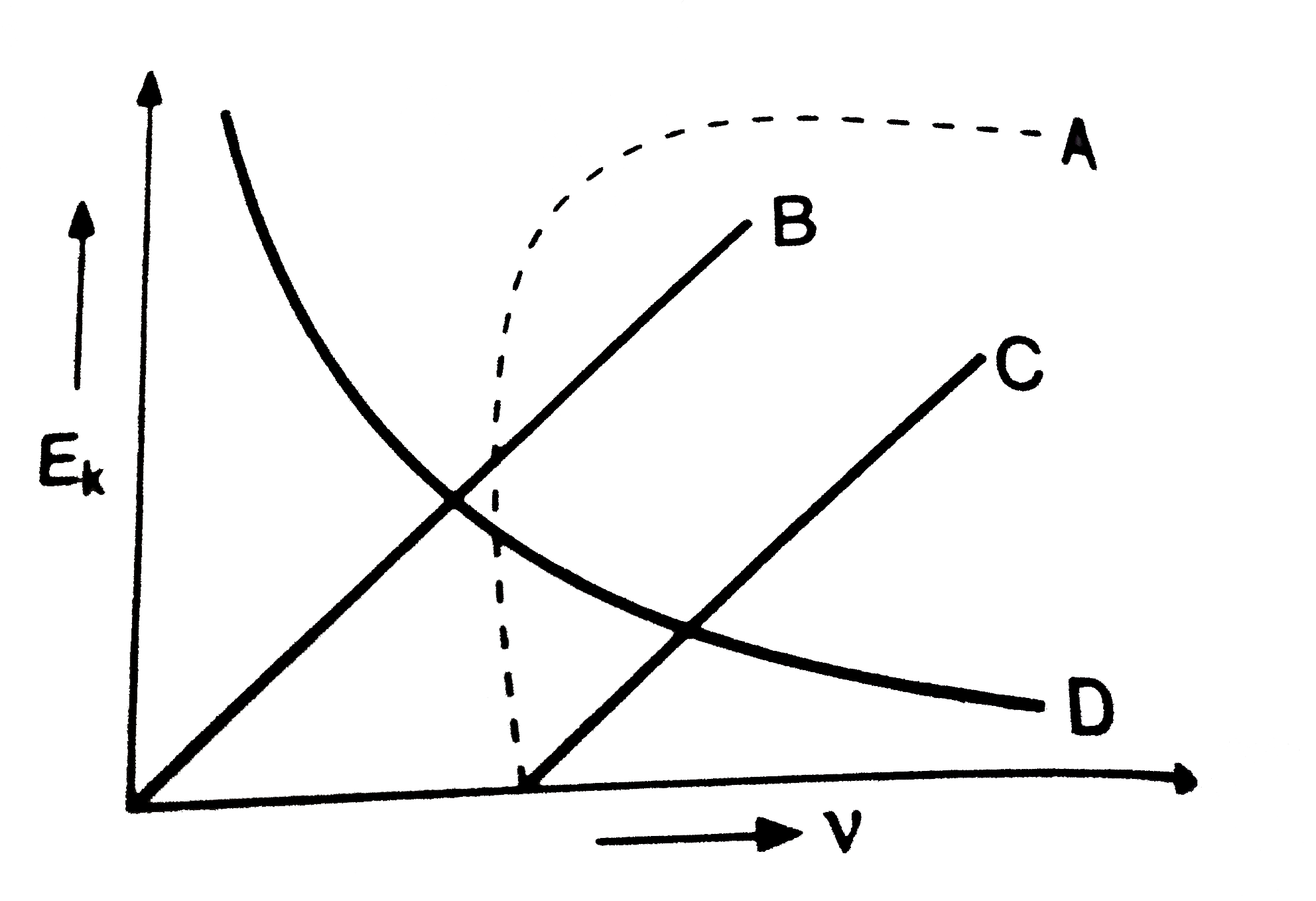
View Solution
Knowledge Check
Maximum kinetic energy (Ek) of a photoelectron varies with the frequency (v) of the incident radiation as
A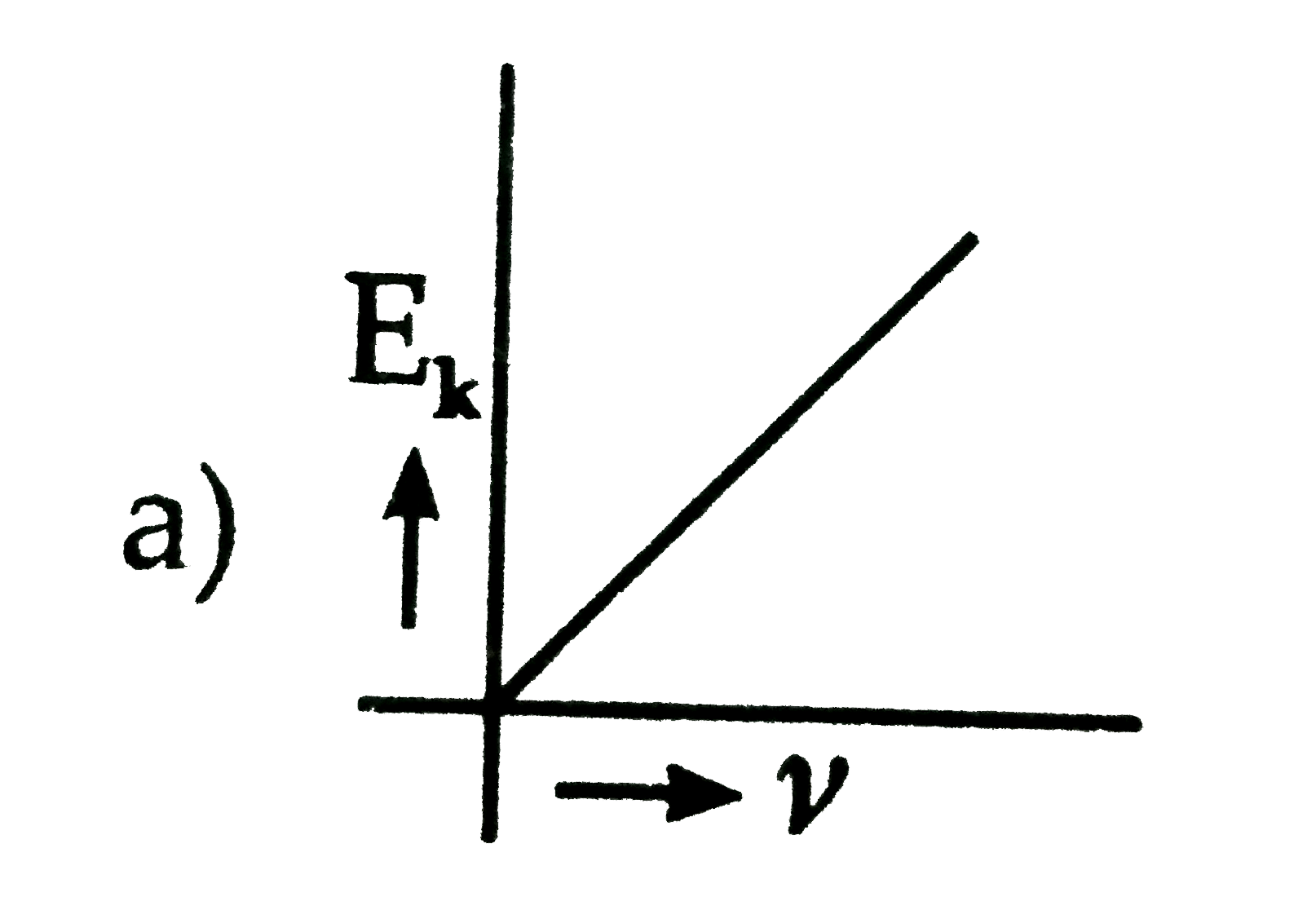 B
B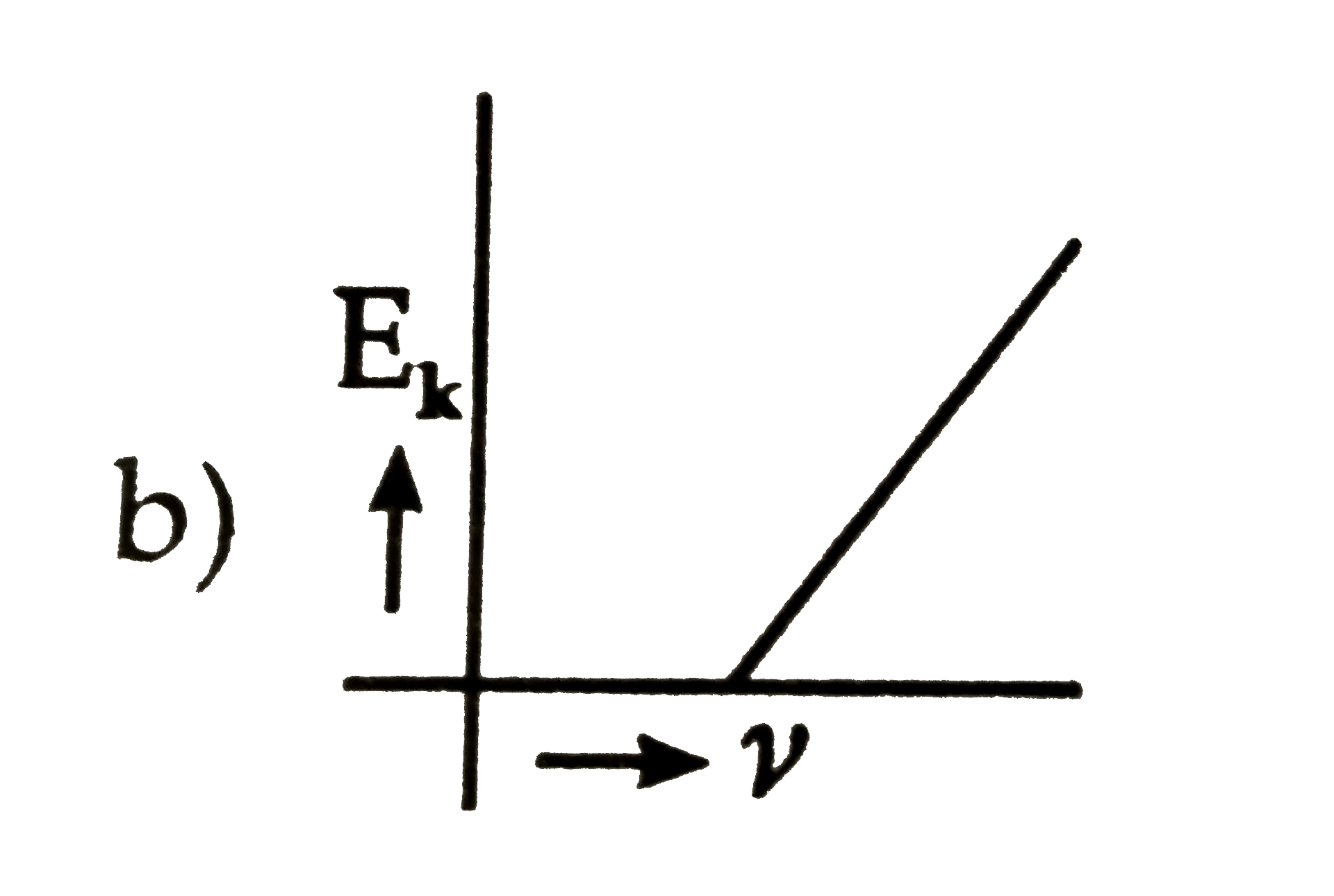 C
C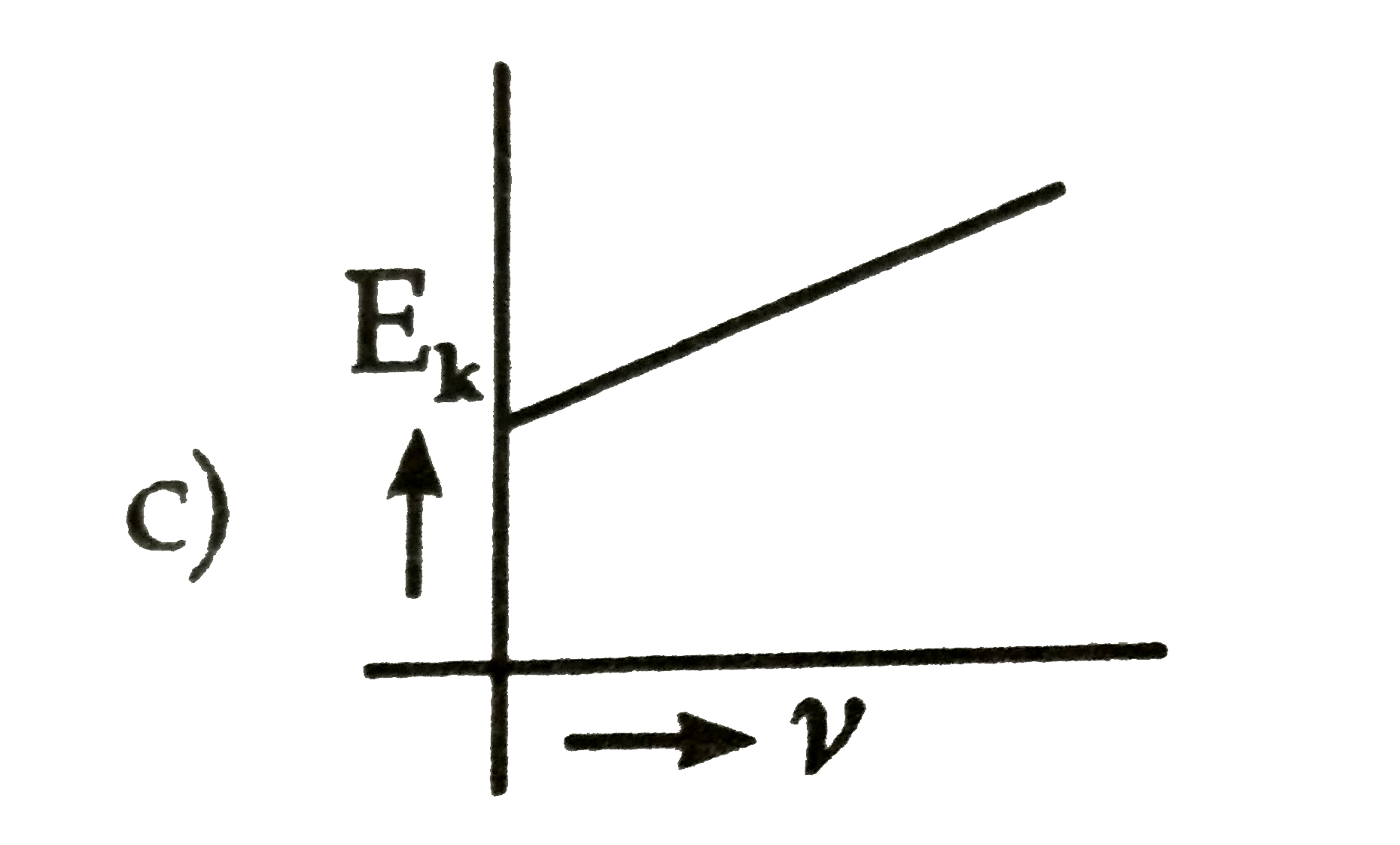 D
D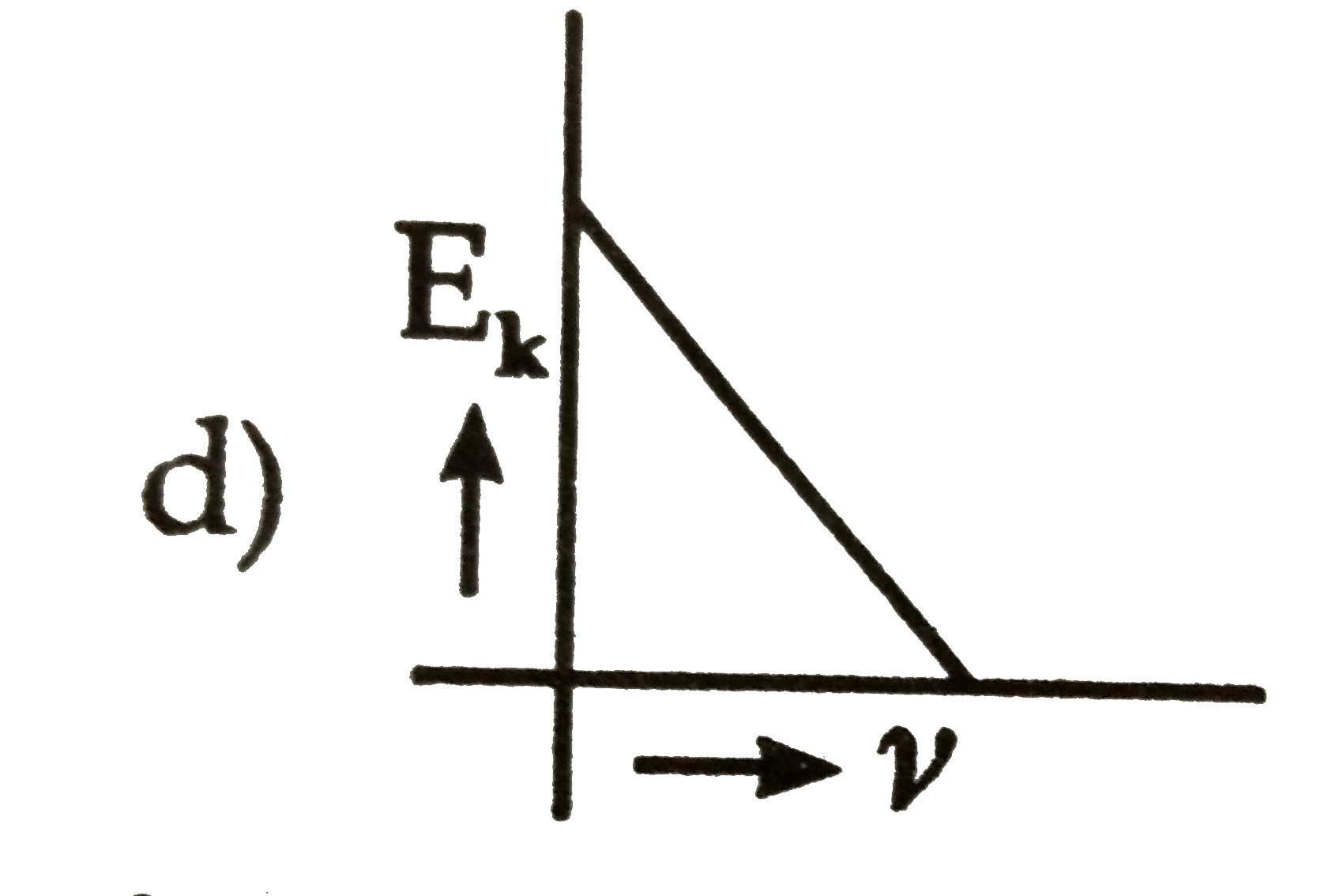
The De Broglie wavelenght associated with electron in n Bohr orbit is
A2πrnA0B2πnA0C1nA0DnA0The kinetic energy (Ek) of a photoelectron varies with the frequency (v) of the incident radiation as which of the following graph ?
A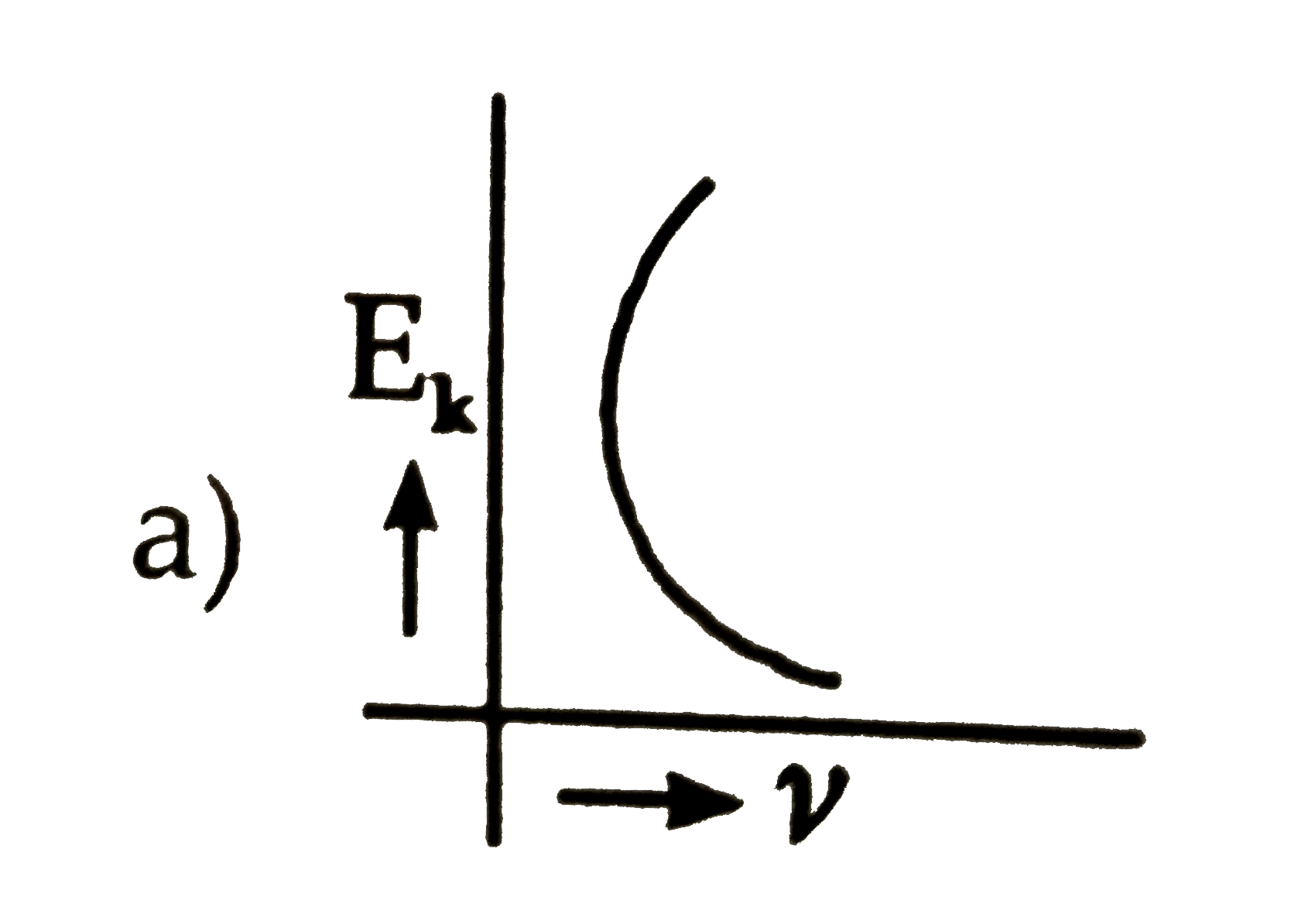 B
B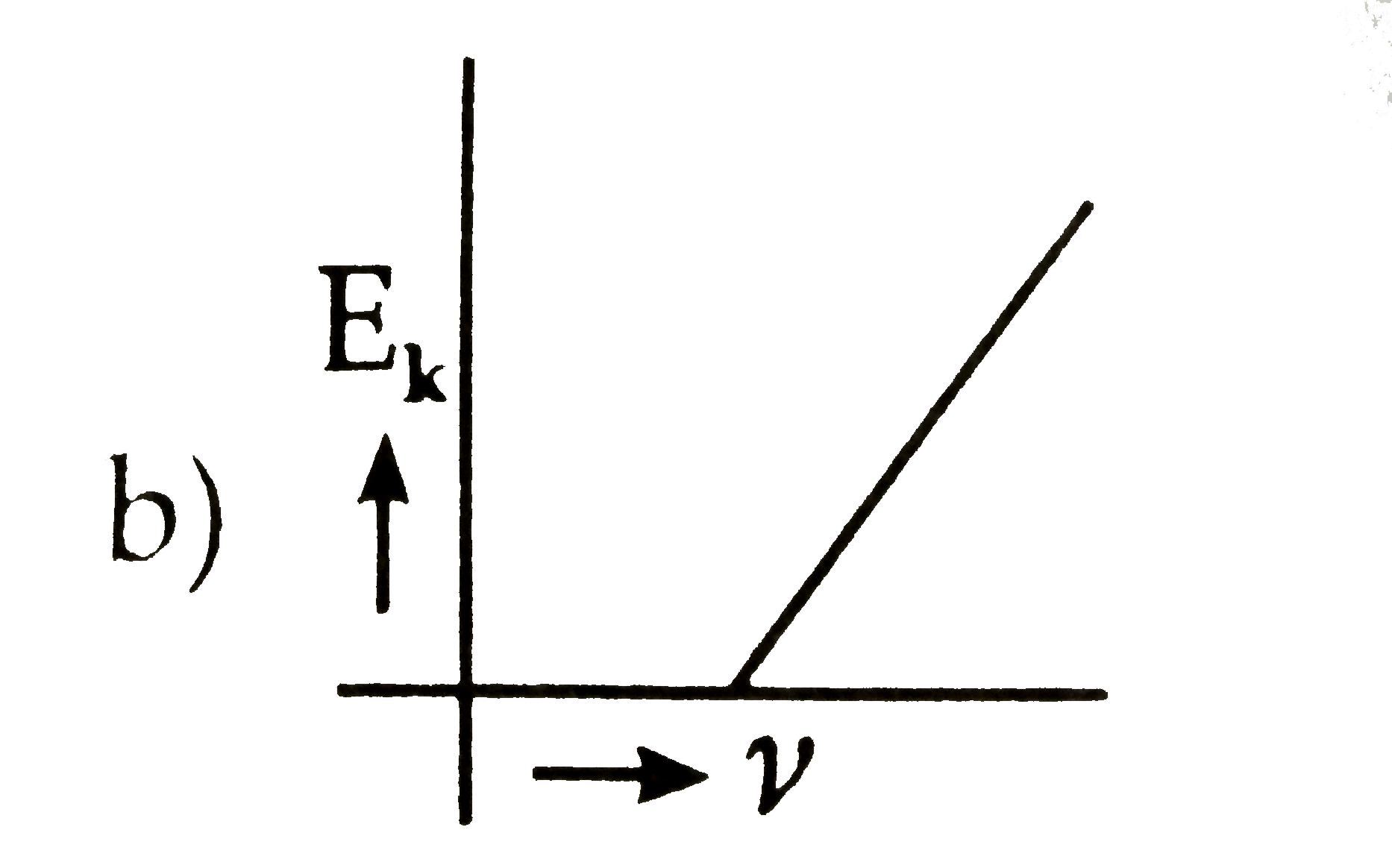 C
C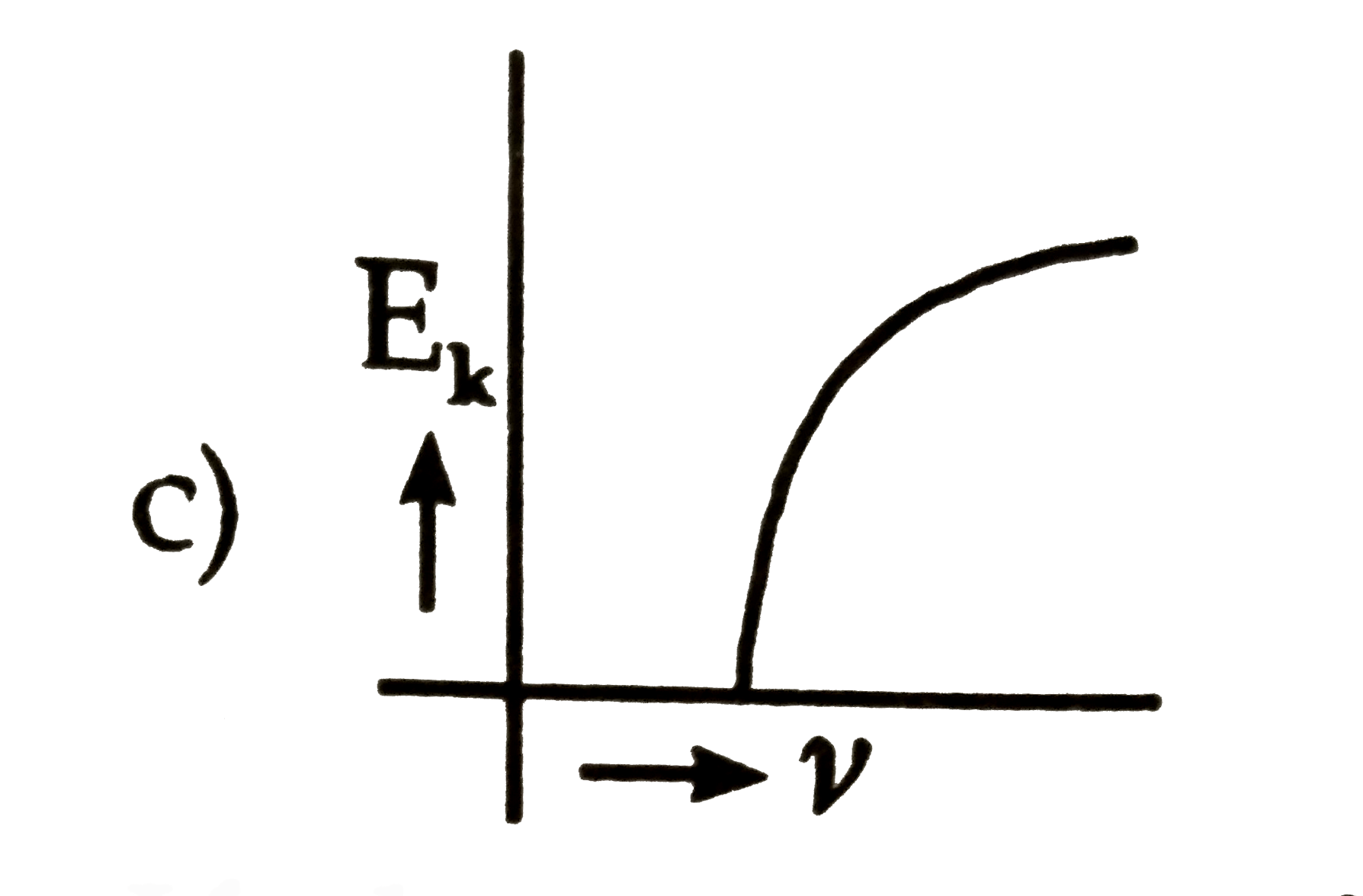 D
D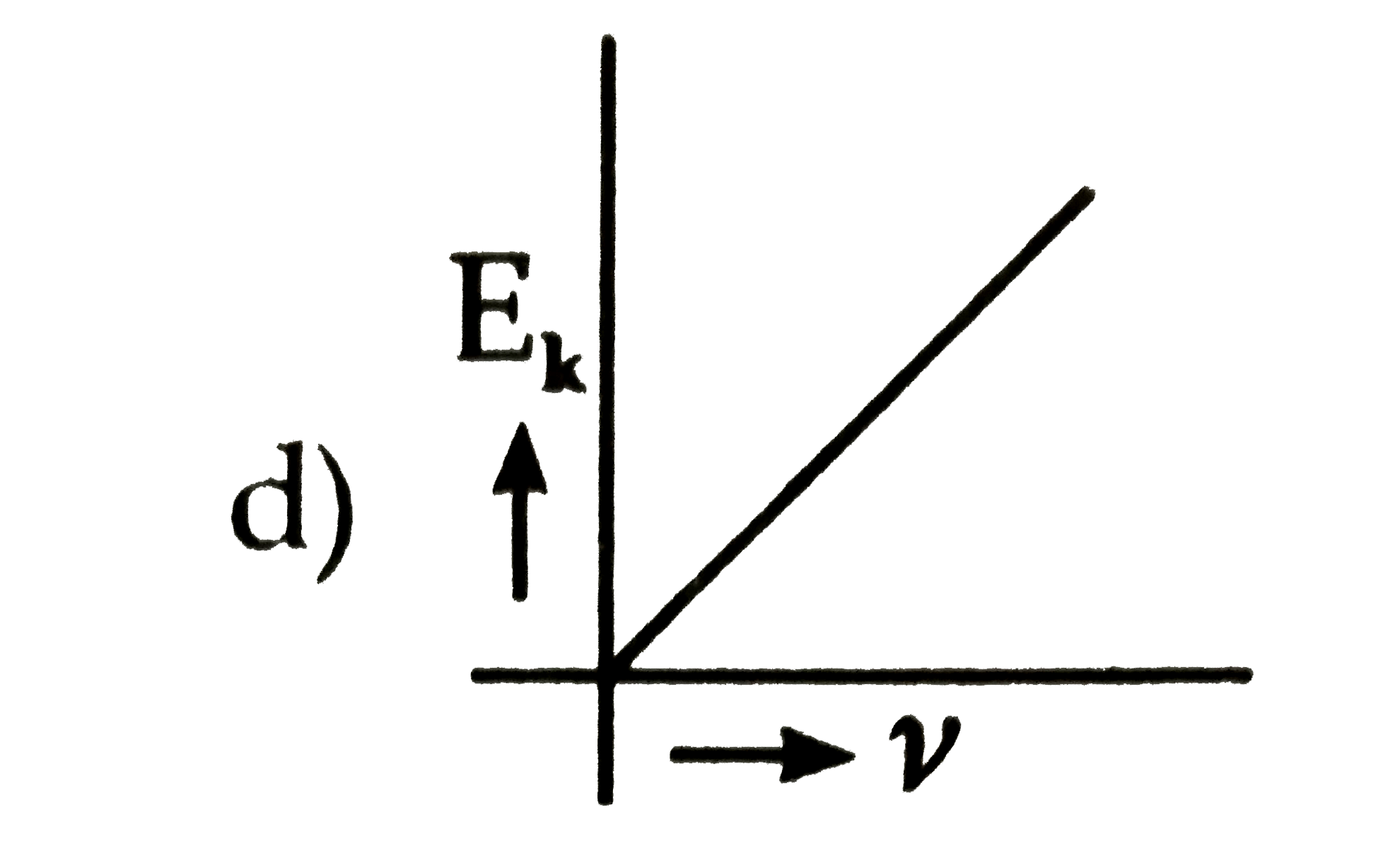
The de-Broglie wavelength λ associated with charged particle of charge q, mass m and potential difference V is
View SolutionThe de Broglie wavelenght associated with neutrons in thermal equilibrium with matter at 300 K is:
View SolutionWhich of the following is the graph between the frequency (v) of the incident radiations and the stopping potential ?
View SolutionWhen the light of frequency 2v0 (where v0 is threshold frequency), is incident on a metal plate, the maximum velocity of electrons emitted is v1. When the frequency of the incident radiation is increased to 5v0, the maximum velocity of electrons emitted from the same plate is v2. the ratio of v1 to v2 is
View SolutionWhen the light of frequency 2v0 (where v0 is threshold frequency), is incident on a metal plate, the maximum velocity of electrons emitted is v1. When the frequency of the incident radiation is increased to 5v0, the maximum velocity of electrons emitted from the same plate is v2. the ratio of v1 to v2 is
View Solution
